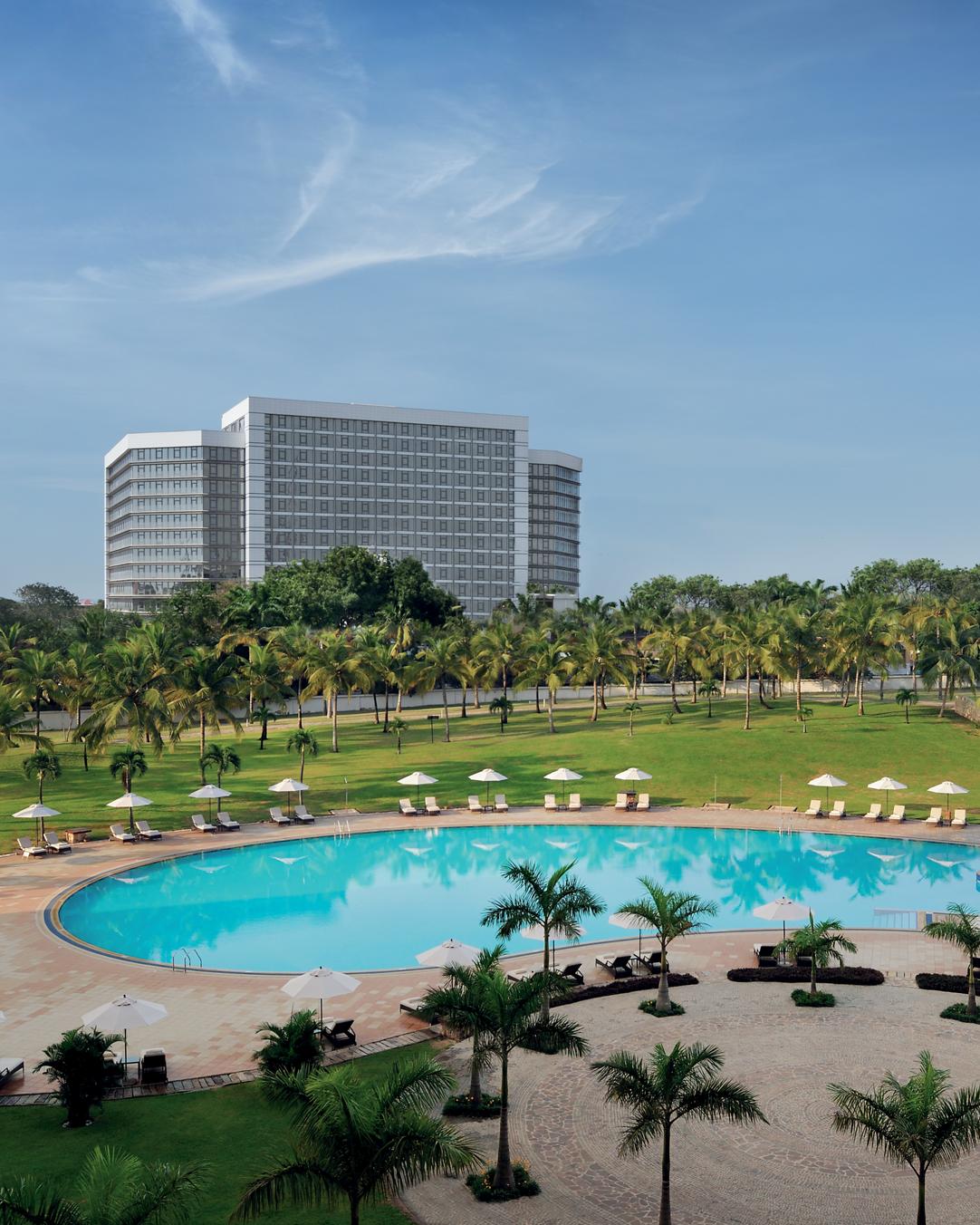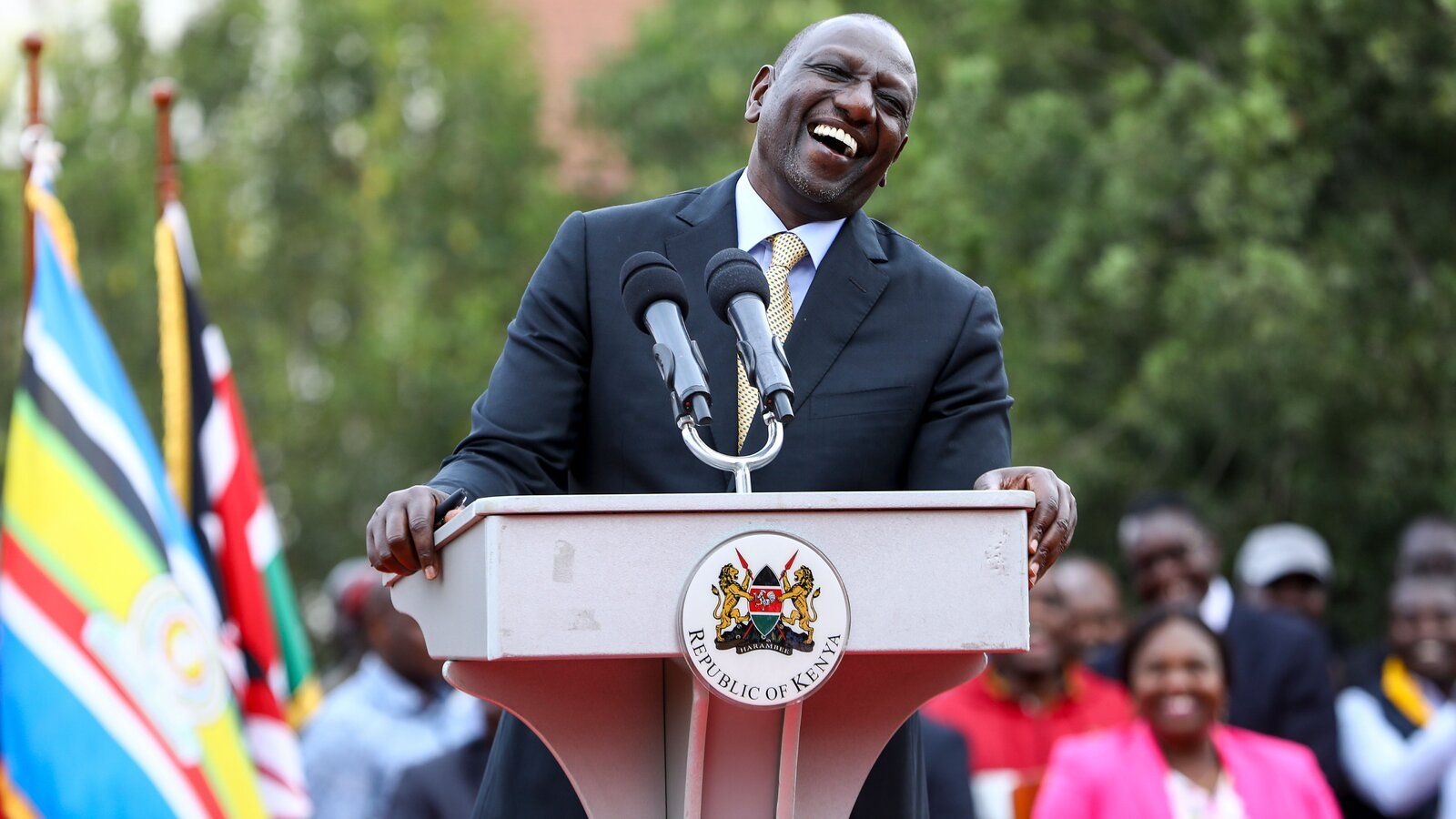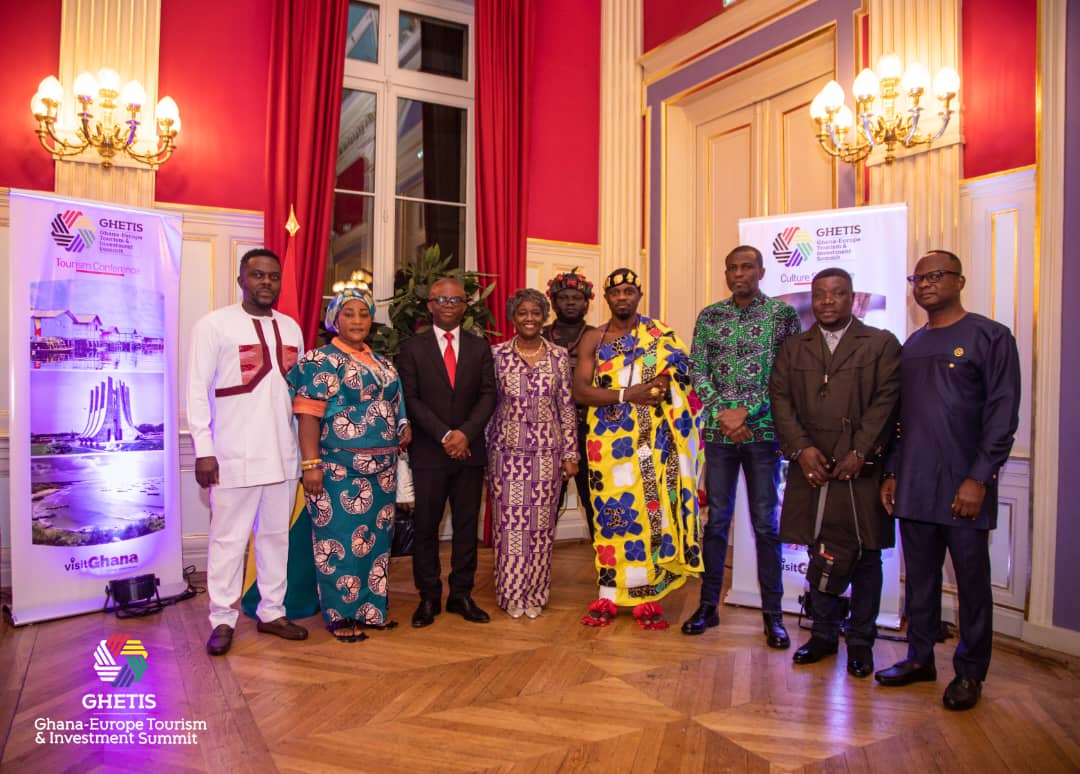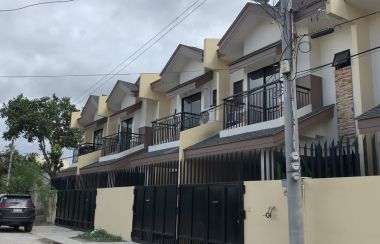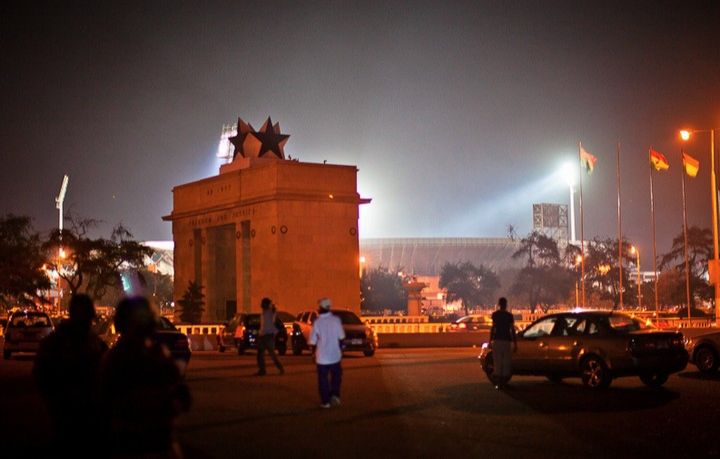Herdsmen v farmers, Nigeria\'s deadly battle for land

Farms have been built on ancient routes of a semi-nomadic community in Nigeria, causing violence that has already claimed hundreds of lives this year.
Cradling her baby son, Benjamin, Joy Abuh stares intently when she talks about the moment her life changed forever.
"The herdsmen shot my husband as he was riding his motorbike," she told me matter-of-factly. "They then used a machete to hack him to death."
She says his body was found in the bush several days later.
It was so badly decomposed that villagers buried it before Mrs Abuh had the chance to see her husband for the last time.
Locals in Agatu district in Nigeria's central Benue state say Fulani herdsmen killed dozens of people during a string of attacks this spring.
Many homes were set on fire and reduced to piles of bricks.
Some of the villagers are still recovering from their injuries: I saw one man hobbling along on crutches as a result of a gunshot wound.
These types of clashes between herdsmen and farmers are increasingly common in some parts of the country as the struggle over grazing rights and access to water becomes more acute.
The violence is largely blamed on Fulani herdsmen, a semi-nomadic group who roam areas in West and Central Africa.
'Sophisticated weapons'
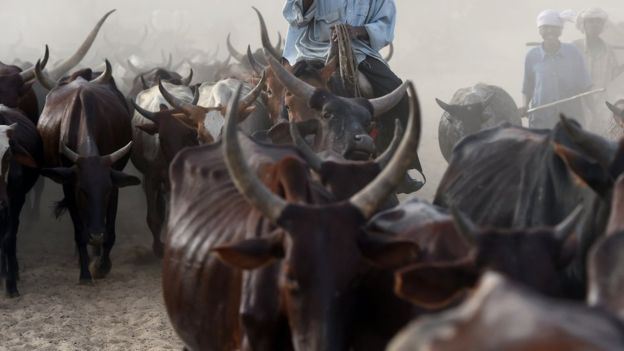
During the dry season in Nigeria, herdsmen begin the long migration from the northern states to the country's central region in search of grazing pastures for their cattle.
It is a journey the herdsmen, often young boys, have been making for centuries.
Following well-established routes, they often return to the same areas.
But land that was once unclaimed and, therefore, free to graze on is now being farmed, frequently triggering clashes.
Hundreds of people have been killed in the violence in 2016.
They are believed to be the largest semi-nomadic group in the world and are found across West and Central Africa - from Senegal to the Central African Republic
In Nigeria, some continue to live as semi-nomadic herders, while other have moved to cities
Unlike the more integrated city dwellers, the nomadic groups spend most of their lives in the bush and are the ones largely involved in these clashes
They herd their animals across vast areas, frequently clashing with farming communities
They are often linked with another group, the Hausas, having lived together for a very long time. Some refer to the Hausa-Fulanis but they are different groups
The Fulanis played a key role in 19th Century revival of Islam in Nigeria
Nigeria's Fulani herdsmen
Farmers accuse the Fulani of failing to control their cattle and of damaging crops. In turn, the Fulani accuse farmers of stealing their cattle.
The Fulani insist they are only trying to defend themselves and preserve their traditional way of life.
"In the past you graze anywhere, you didn't come into contact with farms. But now you're forced to herd cattle along the road," says Isa Mosham Sarkin, a local Fulani leader in neighbouring Nasarawa state.
"People are saying that Fulani are a threat to the nation. But we're not the ones causing the problems - it is some farmers."
For more Videos and exclusive pictures Click here
Source BBC




.jpg)
















